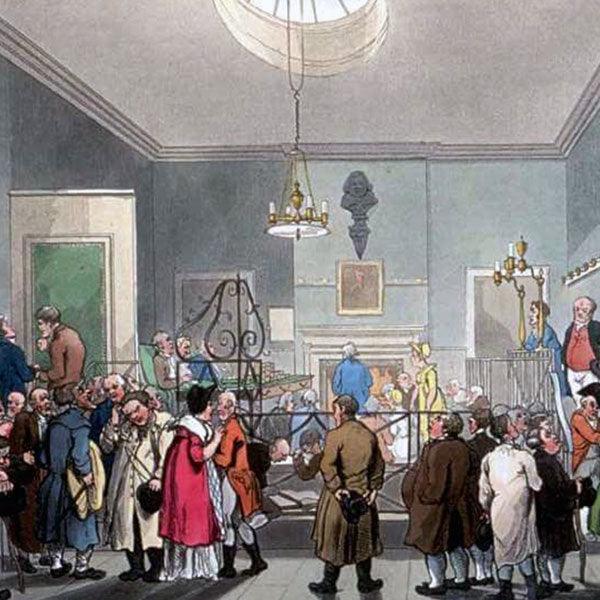
The Bow Street Runners
 The Bow Street Runners are widely viewed as London's first professional police force. They were founded in 1749 by the Somerset-born author Henry Fielding (most well-known for his novel Joseph Andrews) and originally numbered just eight. Similar to the 'thief-takers' (men who would solve petty crime for a fee), they represented an early attempt at formalising and regularising existing policing methods. What made them different to the thief-takers, however, was their formal attachment to the Bow Street magistrates' office and the fact they were paid by the magistrate with funds from central government.
The Bow Street Runners are widely viewed as London's first professional police force. They were founded in 1749 by the Somerset-born author Henry Fielding (most well-known for his novel Joseph Andrews) and originally numbered just eight. Similar to the 'thief-takers' (men who would solve petty crime for a fee), they represented an early attempt at formalising and regularising existing policing methods. What made them different to the thief-takers, however, was their formal attachment to the Bow Street magistrates' office and the fact they were paid by the magistrate with funds from central government.

The Bow Street Runners operated out of Fielding's office at No.4 Bow Street, and did not patrol but served writs and arrested offenders on the authority of the magistrates, travelling nationwide to apprehend criminals. Contrary to several popular sources, the Bow Street Runners were not nicknamed "Robin Redbreasts"- this was reserved for the Bow Street Horse Patrol. The Horse Patrol, organised in 1805 by Sir John Fielding's successor, Richard Ford, wore a distinctive scarlet waistcoat under their blue greatcoats.
When Henry Fielding retired as 'court' or Chief Magistrate in 1754 he was succeeded by his brother John Fielding, who had previously been his assistant for four years. Known as the "Blind Beak of Bow Street" (Sir John had been blind since birth but despite this, was reputed to have known over 3,000 criminals by the sound of their voices), John Fielding refined the patrol into the first truly effective police force for the capital.

John Fielding, (1721-1780). Portrait by Nathaniel Hone the Elder, held by the National Portrait Gallery, 1762.
Although the force was only funded intermittently in the years that followed, it served as the guiding principle for the way policing was to develop over the next eighty years: Bow Street was a manifestation of the move towards increasing professionalisation and state control of street life. The Bow Street runners were officially disbanded in 1839 and its personnel, where possible, incorporated into the new Metropolitan Police force. Just last year, a new museum was opened in Covent Garden, dedicated to Bow Street and its links to the first regularised police force in London. It is located on the site of the 1881 Bow Street Magistrates’ Court and Police Station, built by the Metropolitan Police to replace all previous buildings.
Enjoyed this article? If you don't want to miss a beat when it comes to Jane Austen, make sure you are signed up to the Jane Austen newsletter for exclusive updates and discounts from our Online Gift Shop.



Leave a comment
This site is protected by reCAPTCHA and the Google Privacy Policy and Terms of Service apply.